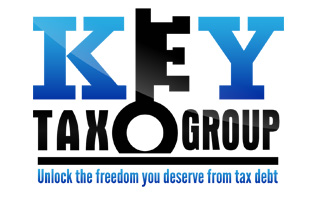Small businesses already have more than enough to worry about, so having back payroll taxes can be among the most serious issues a business owner can have when it comes to dealing with the Internal Revenue Service (IRS). If you have fallen behind on paying your payroll taxes, do not wait to seek the help of an experienced tax attorney.
Payroll taxes are perhaps the form of tax debt that the IRS will be the most aggressive in collecting, so many business owners will need payroll tax debt relief. Employers will withhold many kinds of taxes, including income taxes, Social Security, and Federal Insurance Contributions Act (FICA) taxes, from their employees’ paychecks, but they are also entrusted to pay the money they collect to the IRS, so failure to follow through on this payment is often seen as a major violation.
Employment Taxes and the Trust Fund Recovery Penalty
The taxes employers withhold from the checks of their employees are known as trust fund taxes, and employers have an obligation to send this money to the IRS. Failure to pay trust fund taxes can trigger the trust fund recovery penalty (TFRP), which is a large fine an employer has to pay knowingly or willfully keeping employee taxes that are owed to the IRS.
The TFRP may be assessed against any individual responsible for collecting or paying withheld income and employment taxes or collected excise taxes and willfully fails to collect or pay them. The IRS states that willfulness involves a responsible person who has been or should have been aware of outstanding taxes and intentionally disregards the law or is plainly indifferent to its requirements.
The amount of a TFRP penalty will be equal to the unpaid balance of the trust fund tax, which is computed based on the unpaid income taxes withheld plus the employee’s portion of the withheld FICA taxes. If the IRS determines that a person is a responsible person, the agency will provide them with a letter stating that it plans to assess the TFRP against them, and they will have 60 days from the date of the letter to appeal the proposal.
The bottom line is that penalties can add up very fast, and you will need a payroll tax attorney to help you minimize those costs. You will not only have to pay a TFRP penalty but also a failure to file a penalty, interest on the late taxes, and the taxes themselves.
Other Consequences of Not Paying Payroll Tax Debt
The IRS begins its collection process by sending you a letter to assess your penalties and demand immediate payment. The IRS does not contact taxpayers via email, text messages, or social media channels, so any electronic messages are usually phishing or online scams.
You will instead receive an actual letter in the mail from the IRS. If you do not respond to a letter about your payroll taxes and take no action, harsher IRS collection tactics will begin.
Some of the possible penalties you can be looking at might include:
- Tax liens – A federal tax lien is the government’s legal claim against your property when you neglect or fail to pay a payroll tax debt. The lien will protect the government’s interest in all of your property, and the tax lien exists after the IRS puts your balance due on the books and sends you a bill that explains how much you owe.
- Wage levies – The IRS can levy (seize) your wages, and a portion of your wages are sent to the IRS each pay period until you make other arrangements to pay your overdue taxes, the full amount of overdue taxes you owe is paid, or the levy is released.
- Bank levies – When the IRS places a levy on a bank account, the Internal Revenue Code (IRC) gives you a 21-day waiting period for complying with the levy, contacting the IRS, and arranging to pay your taxes or notify the IRS of errors in the levy.
- Property seizure – An IRS levy allows for the legal seizure of your property to satisfy a tax debt. The IRS can seize and sell your vehicle(s), real estate, and other personal property. If you receive an IRS bill entitled Final Notice of Intent to Levy and Notice of Your Right to A Hearing, contact a payroll tax lawyer right away.
- Incarceration – The IRS does not often pursue criminal penalties unless a case involves many millions of dollars in unpaid taxes. The maximum sentence for tax evasion will be five years in prison.
Call Us Today to Speak with a Jacksonville Tax Attorney
If you are falling behind on your payroll taxes and are now getting letters from the IRS, do not wait to get payroll tax representation. You will benefit from having a skilled tax lawyer negotiating with the IRS on your behalf for the most favorable possible outcome to your case.
Key Tax Group works tirelessly to help our clients get the best and most affordable tax resolutions possible, and we have significant experience dealing with both revenue officers and aggressive collectors.
Call (386) 320-6169 or contact us online to take advantage of a free consultation with our Jacksonville tax attorney.
